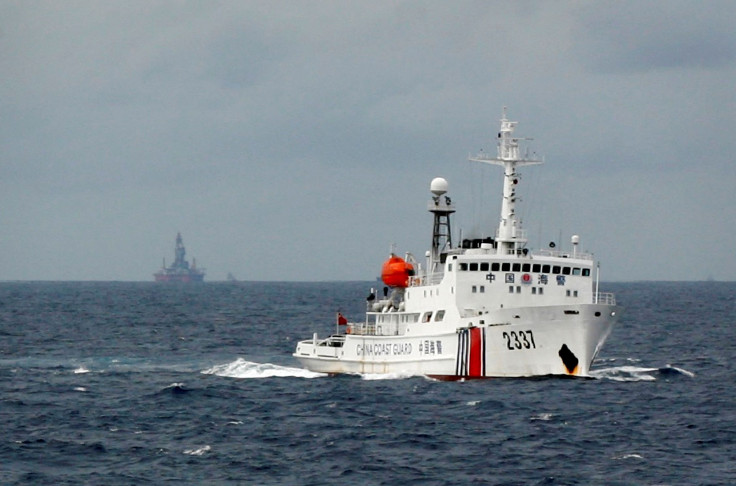South China Sea Dispute: Beijing Sends Largest Coastguard Ship As Warning To Indonesia, Vietnam
KEY POINTS
- Based on its so-called 'nine-dash line' Beijing has laid historical rights over most of South China Sea
- Indonesia approved plans for development of the Tuna offshore gas field, located in the region
- China has counted on intra-ASEAN divisions and fissures to prevent the emergence of a united front
China dispatched its leading coastguard ship sailing into the waters around Indonesia's Natuna islands in the South China Sea as a warning after the country finalized a crucial agreement with Vietnam and approved plans to develop an offshore gas field.
Beijing's decision to send its coastguard vessel to the region came around the same time Jakarta and Hanoi completed a 12-year negotiation to define their overlapping exclusive economic zone (EEZ) claims in the South China Sea, a rather disconcerting development for China, according to a maritime expert who spoke to the South China Morning Post (SCMP).
The 12,000-ton coastguard vessel CCG 5901, considered the world's largest such ship, left China's Sanya port in Hainan Island on Dec. 16 and arrived in Indonesia's EEZ on Dec. 30, as per a report by BenarNews and Radio Free Asia based on data from ship tracker website Marine Traffic.
With Indonesia and Vietnam rejecting China's territorial claims in the region, the agreement is expected to make way for the two nations to establish a united front to counter Beijing's aggression.
The largest cutter coast guard vessel in the world, CCG 5901, the monster, is around Vanguard bank? Ready to ramm Kiem Ngu, VCG, or IDN Navy? I think it's a response to Indonesia and Vietnam's agreement on EEZ. pic.twitter.com/NKL7u2v8g6
— IMOSINT (@imosint) December 30, 2022
The development in negotiations "might have come across as rather disconcerting to Beijing, which has counted on intra-ASEAN divisions and fissures to prevent the emergence of a united front", Collin Koh, a research fellow with the S. Rajaratnam School of International Studies in Singapore told SCMP, adding that the deployment of the coastguard vessel was certainly "to send a signal to both Indonesia and Vietnam."
Following its agreement with Vietnam, Indonesia has approved plans for the development of the Tuna offshore gas field in the South China Sea, with a total estimated investment of $3.07 billion.
The Tuna field, which is located between Indonesia and Vietnam, not only lies within Indonesia's exclusive economic zone but also inside China's so-called "nine-dash line" that Beijing uses to claim historical rights over the South China Sea.
Although a 2016 international arbitration ruled against China, Beijing has rejected the verdict and continues to send coastguard and other ships to disrupt activities by littoral countries. Although Beijing has not claimed the Natuna Islands, it claims fishing rights in the region.
Despite Jakarta and Hanoi rejecting Beijing's territorial claims, Chinese ships have regularly entered the area, causing tensions between the countries. In September 2022, a Chinese coastguard patrol boat entered the waters, intimidating local fishermen and leading to a confrontation with the Indonesian Maritime Security Agency patrol team.

© Copyright IBTimes 2024. All rights reserved.






















